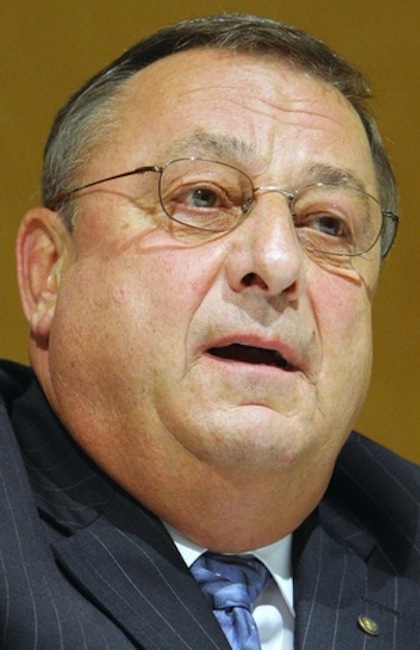AUGUSTA — Gov. Paul LePage reiterated Wednesday that “nothing gets done” until lawmakers pass his plan to pay off Medicaid reimbursements the state owes to Maine’s hospitals, but a top Democrat said there may be constitutional issues with LePage’s plan.
Senate Majority Leader Seth Goodall, D-Richmond, cited a 2009 opinion by Attorney General Janet Mills, who determined that a proposal at the time by Republican Sen. Kevin Raye to use a voter-approved bond to pay outstanding Medicaid debt to the hospitals violated the state Constitution.
Mills’s recommendation, based on several Maine Supreme Judicial Court opinions, said Raye’s proposal violated a constitutional provision prohibiting the use of bond proceeds to fund “current expenditures.”
Mills said the settlement of the debt would qualify as a current expenditure.
LePage wants to fund the bond payments with revenue from a pending renegotiation of the state’s wholesale liquor contract.
Goodall said the constitutional issue shows that lawmakers shouldn’t rush to approve the governor’s bill.
“The notion that the governor’s bill can just be passed as is, that the money can just be paid, is inaccurate,” he said.
Adrienne Bennett, LePage’s spokeswoman, said the administration is well aware of Mills’s 2009 opinion.
Michael Cianchette, the governor’s legal counsel, said he is confident that the governor’s proposal could proceed as drafted but the administration is open to hearing concerns about its constitutionality.
The governor’s proposal is for a revenue bond, which would be approved by the Legislature. General obligation bonds — the type of borrowing cited in Mills’s opinion — are approved by voters.
Cianchette said the distinction would help LePage’s plan clear the constitutional hurdle.
He also disputed any interpretation of the Medicaid reimbursements to the hospitals as “a current expense.” He said they would be debt payments, especially now that the state has switched to a pay-as-you-go system with the hospitals.
“We don’t think it’s unconstitutional to pay your bills,” Cianchette said.
Tim Feeley, a spokesman for Mills, acknowledged that the difference between the two types of bonding is significant. Nonetheless, he said, the Attorney General’s Office found it necessary to flag the bill because of the constitutional language regarding “current expenditures.”
“It’s a constitutional definition, not an accounting definition,” Feeley said.
Although Republican leaders said last week that the governor told them he will consider signing bipartisan bills with an economic development component, LePage told reporters during a ceremonial maple tree tapping Wednesday that he won’t sign any legislation until the hospitals are paid.
“If (Democrats) don’t want to pay the hospitals, what can you do?” he said. “You can only lead a horse to water.”
When a WSCH-TV reporter asked if he might sign some proposals, LePage said, “Nothing gets done. Nothing.”
He said that if Democratic leaders want to use the hospital bill as “a political ball,” it is “stupidity.”
He also likened the Legislature to “a day care.”
Rep. Jeff McCabe, D-Skowhegan, said the governor’s “irrational behavior and do-nothing politics” are counterproductive.
“The Legislature shouldn’t have to do its work in the shadow of this threatened veto spree,” he said McCabe.
Wednesday’s events are setting the stage for a public hearing on LePage’s hospital plan and a competing measure by Goodall. That hearing is scheduled for Monday.
Steve Mistler can be contacted at 620-7016 or at:
smistler@pressherald.com
On Twitter: @stevemistler
Send questions/comments to the editors.




Comments are no longer available on this story